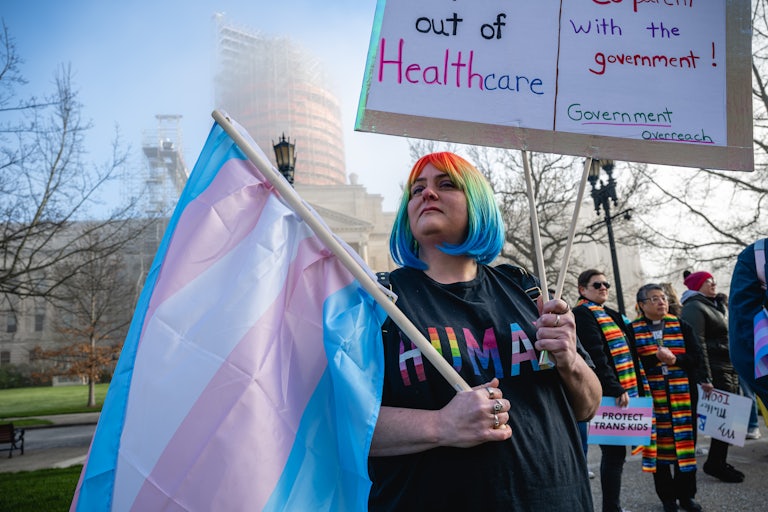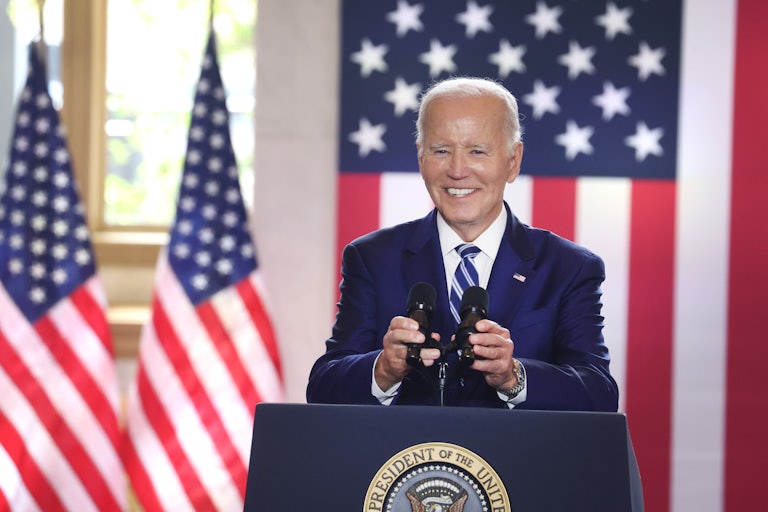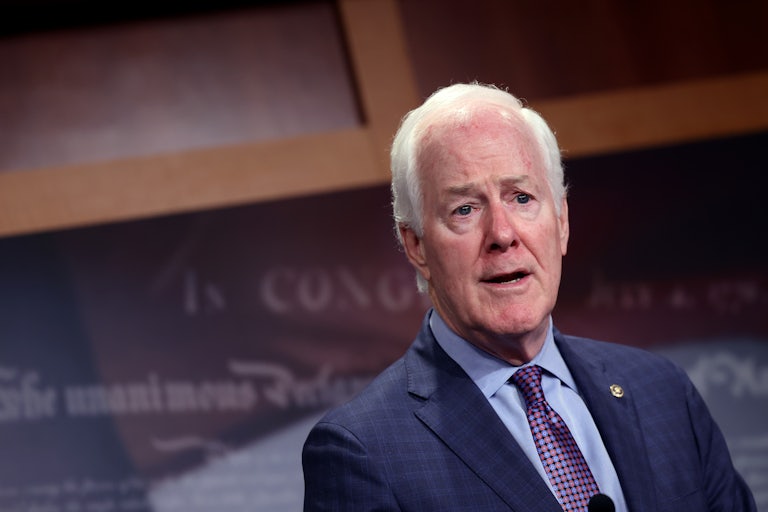Two More Federal Judges Smack Down Bigoted Anti–Trans Youth Bills
Trans health care bans were blocked in Kentucky and Tennessee—but not in North Carolina.

Federal judges in Kentucky and Tennessee have both rejected parts of Republican-led bans on gender-affirming health care for people under the age of 18—just days, even hours, before the anti-trans laws were set to take effect.
On Wednesday, U.S. District Judge David Hale issued a temporary injunction on Kentucky’s ban, allowing puberty blockers and hormone therapy to remain legal and accessible to people under the age of 18 while a broader legal battle proceeds.
The ACLU of Kentucky had filed a suit in May, after Democratic Governor Andy Beshear’s veto was overridden, arguing that the state’s ban on gender-affirming care was unconstitutional because it prevents trans kids specifically from receiving medically necessary care and infringes upon family privacy and doctors’ jobs. The court’s injunction only goes so far, however, as the suit focused mainly on puberty blockers and hormone therapy. Kentucky’s ban on gender-affirming surgeries for those under the age of 18 will still go into effect on Thursday.
Tennessee Judge Eli Richardson issued a similar ruling on Wednesday, stating that criminalizing gender-affirming care for trans kids but not cisgender or intersex kids “imposes disparate treatment on the basis of sex.” Tennessee’s law was set to go into effect on July 1 and would have banned hormone treatment or surgeries for transgender people under the age of 18. Richardson’s ruling did not block the law’s ban on surgeries.
Richardson, a Trump appointee, reiterated that his ruling follows numerous other decisions across the country blocking similar bans on trans health care. “If Tennessee wishes to regulate access to certain medical procedures, it must do so in a manner that does not infringe on the rights conferred by the United States Constitution, which is of course supreme to all other laws of the land,” Richardson wrote.
Richardson also confronted the basic logic of those seeking to defend the bans, and why the bans are not just constitutionally but practically misguided:
Defendants’ assertion that gender-affirming treatment does not improve mental health outcomes relies solely on the testimony of Dr. Cantor, who seems never to have treated an individual for gender dysphoria. But the weight of evidence in the record suggests the contrary—that treatment for gender dysphoria lowers rates of depression, suicide, and additional mental health issues faced by transgender individuals. And at the risk of sounding like a broken record, the Court notes that several courts, based on the respective records in those cases, have found the same.
In North Carolina, Republicans finalized a bill that will ban gender-affirming care—therapy, puberty blockers, and surgeries—for anyone under the age of 18. Democratic Governor Roy Cooper will likely veto the bill, but the Republicans have slim veto-proof majorities in both chambers of the state legislation.











